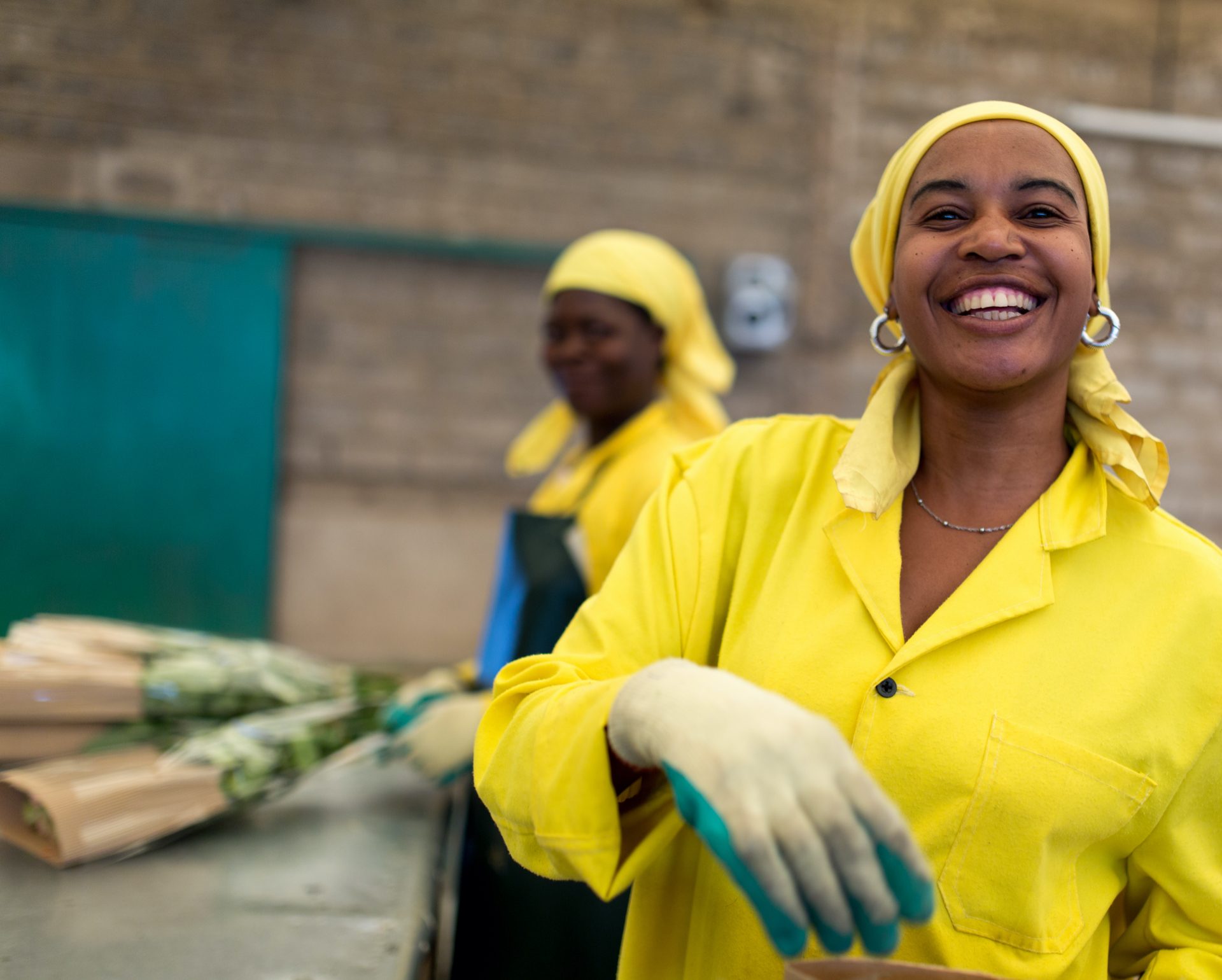Avocado Impact Report – 2020
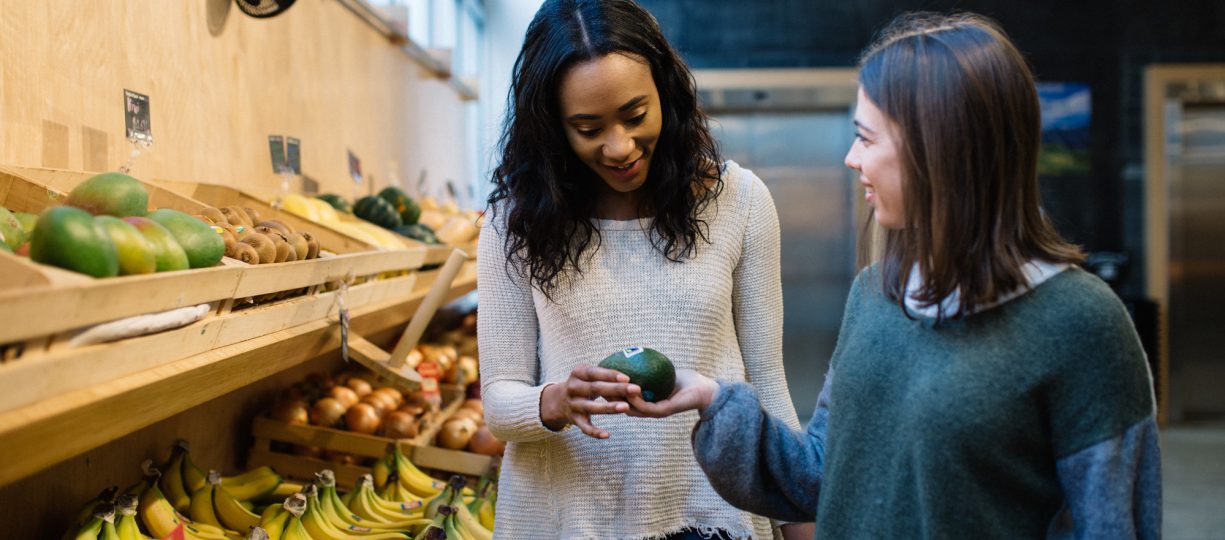
Our Geographic Reach
Fairtrade first began certifying avocados in 2010 to address labor rights and environmental challenges in the industry and offer consumers responsibly produced avocados. Many Fairtrade certified avocados come from small-scale avocado farms scattered across Mexico –where approximately 70% of United States imported Fairtrade avocados are grown.

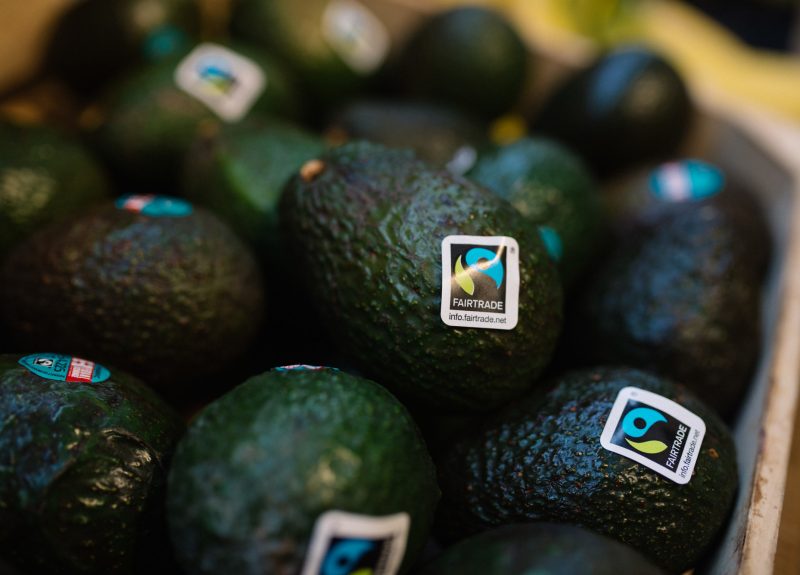
Our Collective Impact
The avocado industry is labor-intensive and demanding. Climate change and plant diseases threaten yields, while large multinational companies wield considerable influence in a sector that requires significant infrastructure to harvest and transport the quick-ripening fruit. Retailers often offer deep discounts on avocados, sometimes selling below cost to attract customers. Together, these factors put avocado growers in a bind. Fairtrade aims to empower avocado farmers and workers; and consumers who buy Fairtrade avocados play a key part – the higher the sales, the more benefits producers will accrue.
Fairtrade avocado farmers are paid a Fairtrade Minimum Price that acts as a safety net against falling prices. This price varies by region, factoring in local conditions and aiming to cover the average costs of sustainable production. Avocado growers also receive a Fairtrade Premium – an extra sum of money that farmers and workers invest in business or community projects of their choice. The Fairtrade Standards, which producers commit to upon Fairtrade certification, are designed to improve employment conditions and protect the rights of workers in the large plantations where most export bananas are grown.
Fairtrade Avocado Market Landscape in the US
There is a total of 15 Fairtrade certified producer organizations. From 2019 to 2020, overall production volume grew by 42%. In 2020, Fairtrade producers sold over 3 million pounds worth of avocados on Fairtrade terms, generating Fairtrade Premium earnings of $200,000 for avocado farmers.
Market research has also shown us that shoppers are looking for Fairtrade and sustainable produce:
- 59% of shoppers said they would be more likely to buy fresh produce that contained a “fair trade” label (The Packer, 2019)
- From 2019 to 2020, Fairtrade bagged produce sales increased by 76% in the MULO channel and by 238% in the Natural channel (IRI & SPINS, 2020)
- Sustainability-marketed branded products enjoy a significant price premium of 39.5% vs. their conventionally marketed branded counterparts (NYU’s Center for Sustainable Business)
Snapshot: Fairtrade Sales Volume & Premium
Fairtrade avocado producers choose to spend the majority of their Fairtrade Premium on direct services for themselves and their families. Education is the most common investment, including scholarships for children, followed by other services such as funding for subsidized shops or goods, childcare services, and contributions to cultural events. Workers also prioritize financial and credit services for themselves and their families, such as rotating funds for workers or loans. Another big category of Premium expenditure relates to the provision of healthcare services for workers and their families, primarily medicine and equipment.
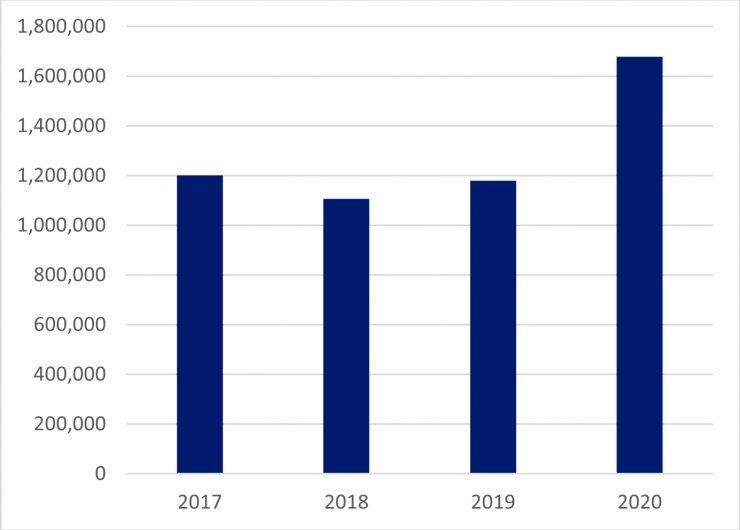
Fairtrade avocado US sales volumes
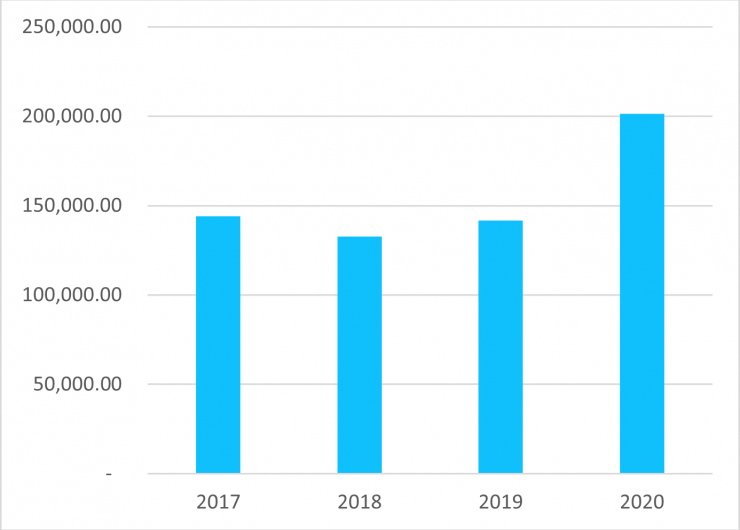
Fairtrade Premiums generated by US avocado sales
Producer Story: Shaping the Next Generation
In addition to buying Fairtrade products and ingredients, companies are increasingly turning to Fairtrade to help them strengthen their supply chains. Targeted programs can assist farmers in adapting to climate change, inspire the next generation of growers through innovation and technology, and investigate alternate sources of income. For example, we are working with Proveedores Agricolas Organicos (PRAGOR), a group of small-scale avocado farmers in Michoacán, Mexico who each own an average of 10 acres of land to continue to advocate for Fairtrade avocados and establish new markets.
PRAGOR increasingly recognizes that production through industrialized agriculture methods has placed pressure on the natural environment and have elected to weave environmental sustainability into their missions, vision, and goals.
“Our Fairtrade certification in 2011 generated trust with our commercial partners and helped us to recover our markets” — Salvador Romero, Manager for PRAGOR, Mexico
PRAGOR elects their Fairtrade Premium to be allocated towards operational and local community initiatives including their Beekeeping Project. The bees are critical to agriculture and growing food, they pollinate the avocado flowers, facilitating fertilization so that the plants can grow and reproduce. Beyond the environmental benefits from maintaining local apiaries in their farms, PRAGOR’s Beekeeping Project is also of economic benefit to the local community. Members sell the honey and distribute the profits equally. This initiative provides members and young people access to financial independence and an opportunity to develop entrepreneurial skills while building stronger support systems and networks within their communities.

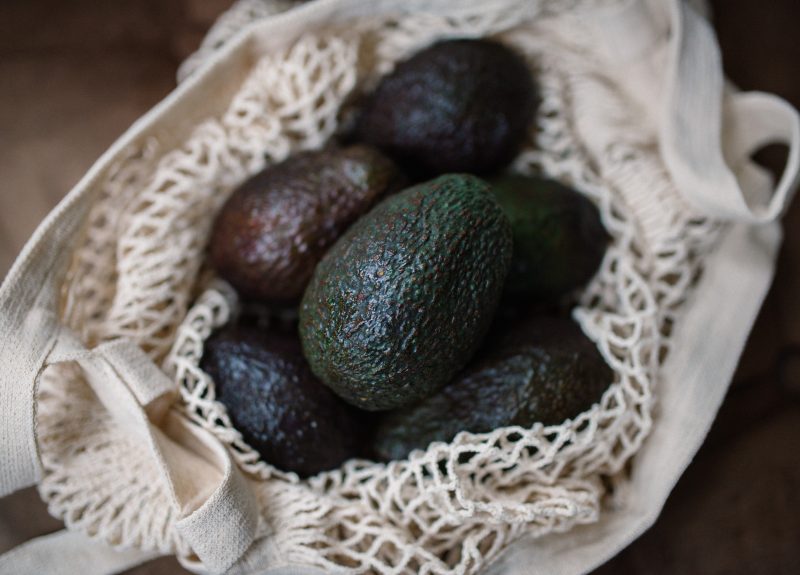
Navigating the Global Pandemic
In the face of unprecedented challenges, our Fairtrade community has been resilient and a source of inspiration during the COVID-19 global pandemic. Our activities throughout 2020 were guided by our mission to achieve a more equitable world where farmers and workers can maintain a decent and dignified livelihood through fair trade, and we continually provide updates on our pandemic-related efforts here.
Join our global movement to build radical collaboration and impact by:
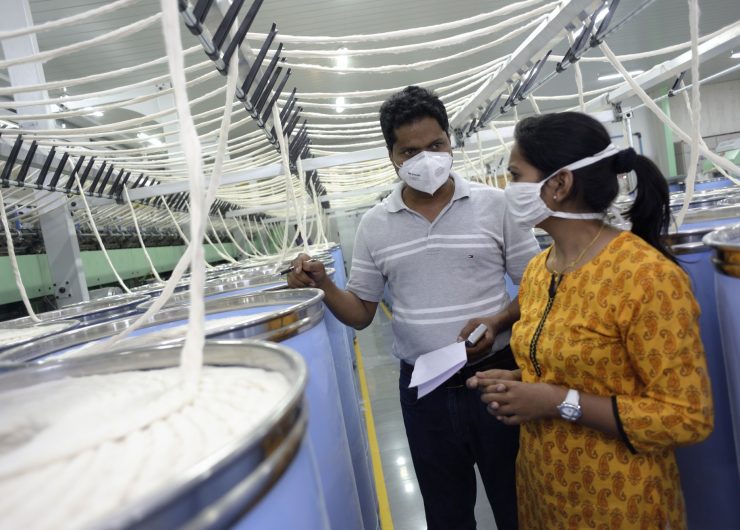
Increase your supply chain transparency
Shoppers are demanding more information on where their food comes from. Here is why and how Fairtrade can work with you on deepening your transparency in the communities you source your bananas from.
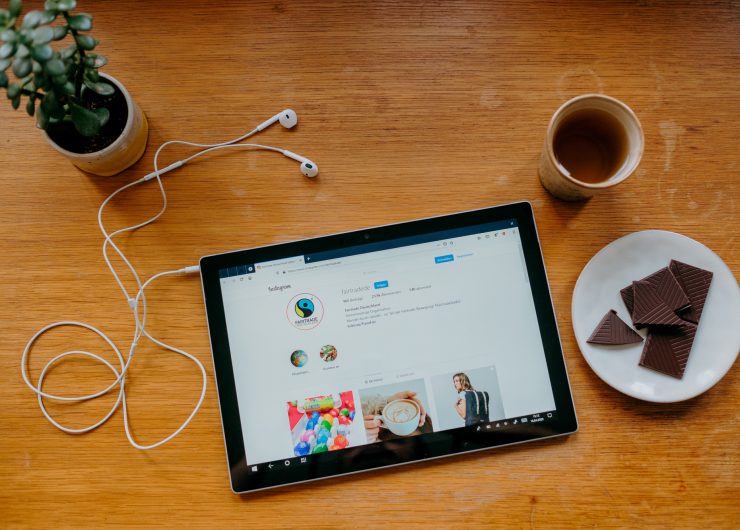
Advocate for Fairtrade
We are spreading the word about Fairtrade in the media and online. Share contents of this report and work with our team share your Fairtrade story.
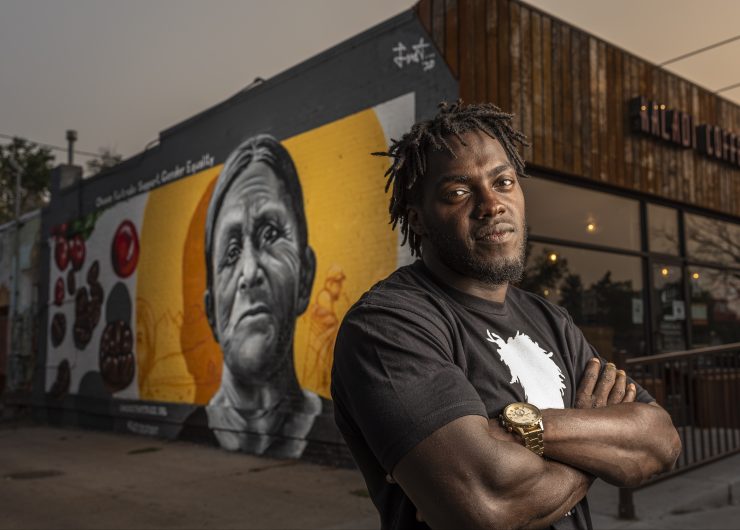
Campaign with us
Join us in demanding a fair deal for the farmers and workers behind our everyday foods and goods by amplifying the people and the causes you care about through our campaign advocacy.

